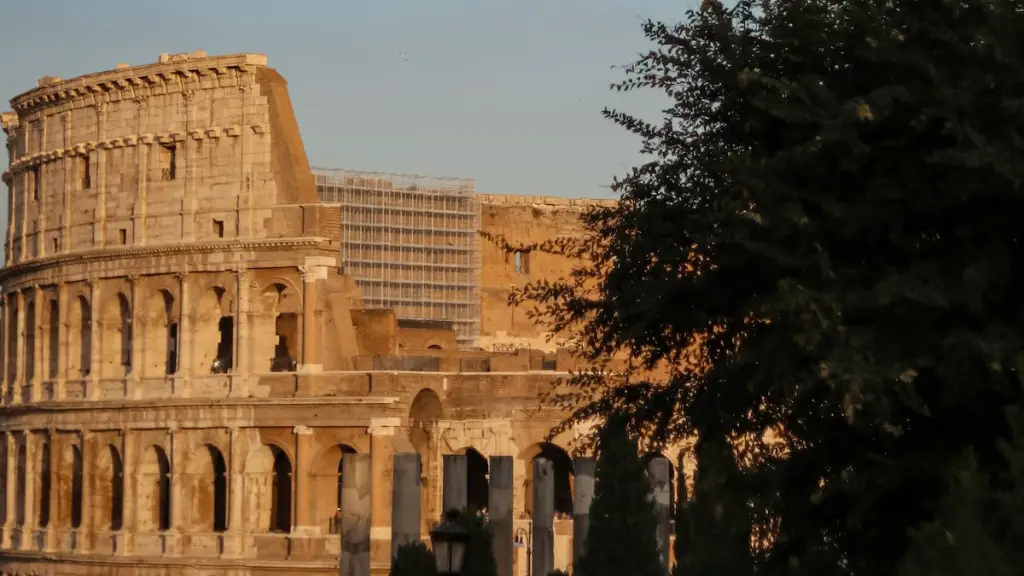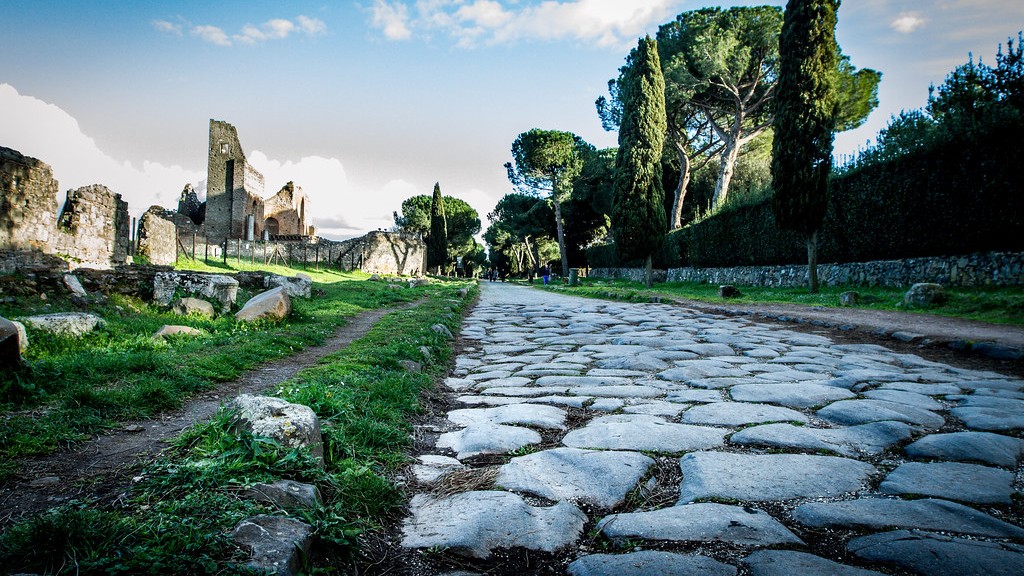The Cruelty of Slavery in the Ancient Roman Empire
The Roman Empire was renowned for its immense size and power, as well as its advanced culture encompassing politics, theatre, art, and religion. However, it is well known that the success of the Roman Empire was largely dependent upon its use of slavery. Slavery was a practice that became an integral part of Roman society and it is believed that millions of people from all over Europe and North Africa were enslaved at different points in time.
The truth of the matter is that the ancient Romans enslaved virtually anyone who had fewer rights than themselves. This included prisoners of war, slaves of the state and domestic slaves. According to various historical accounts, the methods used by the Romans to enslave individuals and communities were often incredibly cruel. Methods such as enslavement by debt and kidnappings were used in order to benefit the keepers and the Roman Empire itself. The slaves that were acquired were used to perform manual labor, as well as to entertain in the gladiator games and to work in the households of the wealthy.
In addition to prisoners of war and domestically acquired slaves, the Romans never hesitated to enslave other nations and civilizations. In some cases, this was done through military conquest and by crushing rebellions. In other cases, individuals and whole communities were illegally kidnapped and sold into slavery. Slaves could also be traded and exchanged for goods, animals or other types of property.
The quality of life for a slave was often dismal, subject to the personal whims of their owner. There were even some instances where slaves were routinely sacrificed for religious purposes. Slaves had little, to no rights and were regularly subjected to harsh punishments for minor offences. It is also believed that there was a direct correlation between the decrease in the quality of life for a slave and the increase in the presence of oppressive Roman law.
The harsh treatment of slaves by the Roman Empire has not been lost on historians, who are quick to point out that the Roman society was deeply entrenched in a culture of slavery. Indeed, some suggest that the way in which the Romans chose to maintain their control and power over the conquered lands was rooted in the systematic and regular use of slaves. Given the depravity of the situation and the lack of human rights afforded to slaves, it is not surprising that the Roman Empire did not hesitate to expand their slave trade to other countries in order to achieve their own political and economic goals.
The Impact of Slavery on Human Rights
The enslavement of people by the Romans has undoubtedly had a significant impact on modern human rights. As previously mentioned, it is widely accepted that the ruling class of the Roman Empire was deeply entrenched in a culture of slavery that they willingly participated in and even encouraged. This has led many experts to suggest that some of the practices used by the Roman Empire, such as enslavement by debt and kidnapping, have had a long-term negative effect on the perception of human rights.
The fact that the enslavement of people was an accepted practice and was even glorified in some respects has been pointed to as one of the main reasons for the lack of progress in terms of human rights as we know them today. It is no secret that slavery and its practices are inherently and inextricably linked with the idea of power and control. This is evidenced by the fact that some of the most oppressive regimes in history, from the Roman Empire all the way through to Apartheid South Africa, have all been driven by similar practices of enslavement and domination.
This creates a dangerous precedent, where those in power have a tendency to resort to the exploitation of others in order to maintain their own dominance. This has a direct impact on the progression of human rights, as it often leads to the mistreatment and oppression of people, combined with a lack of recognition or protection of their fundamental rights as human beings. Unfortunately, as is often the case, it takes extreme acts of brutality and injustice before those in power are brought to account.
The situation is further complicated by the fact that many modern governments are still actively involved in slavery and human trafficking on a grand scale. There has been a significant increase in the number of people being forcibly displaced from their homes and taken across borders to be sold into slavery. The continued use of such practices is a direct consequence of the idea of enslavement that was propagated by the Roman Empire and has had a devastating effect on individuals and communities all over the world.
The Ongoing Legacy of Slavery in Ancient Rome
The cruel and inhumane practices used by the ancient Romans to enslave people have had a lasting impact on modern society. As recent as the twentieth century, similar practices have been used in different parts of the world to further political agendas, resulting in the suffering of countless individuals and entire societies. It is clear that the legacy of slavery in ancient Rome lives on today, as it has been used throughout history as a way to control and subjugate those with less rights than those in power.
It is only through an understanding and appreciation of the grim reality of history that progress can be made towards achieving true equality and freedom for every individual. It is important to recognize the devastating effects of slavery and to work towards a more equitable future. It is only by learning from our past mistakes that we can create a future where everyone is treated equally and with dignity, regardless of their background or station in life.
The Abolition of Slavery in Rome
In recent years there has been an increased focus on the rights and protection of individuals and societies who have been subjected to slavery throughout history. This has led to a growing movement to abolish slavery in modern society, although not all countries have been equally successful in achieving this goal. One of the most notable cases of a successful anti-slavery movement is that of Rome.
In the second century BC, a series of reforms were enacted that abolished the practice of slavery in Rome. This was the first instance of slavery being abolished in any part of the world, and it marked a major milestone in the struggle for human rights. Unfortunately, not all areas of the Roman Empire adopted these reforms, resulting in slavery still being practiced in some areas for centuries afterwards.
However, despite this, the reforms enacted in Rome have had a lasting effect on the course of human rights throughout the world, and have been held up as an example to be followed. The rulers of the Roman Empire had the foresight to recognize the inherent cruelty and injustice of slavery, and to take steps towards abolishing it. This has since served as an inspiration to many who are working towards a more equitable society, where all individuals are recognised as equals and the mistreatment of any person is not tolerated.
International Slavery Laws
Due to the efforts of many national and international organisations, slavery is no longer legal in any part of the world. International law has been established to prevent any form of slavery or human trafficking, and to ensure that those who engage in such activities are brought to justice. This has been a major step in the right direction, as it has made it more difficult for powerful individuals and organisations to continue to exploit individuals and societies.
The International Labour Organisation has been particularly active in the fight against modern slavery, and its conventions and initiatives have had an effect on countries all over the world. This has resulted in the establishment of numerous laws and regulations that stipulate the minimum rights and standards of living for all individuals, regardless of their social and economic status. The result is that slavery has been eliminated in almost all countries around the world, with progress being made in countries where it still exists.
In addition to this, organisations such as the United Nations and the European Union have also taken a stand against slavery and are committed to eliminating the practice in all its forms. This includes initiatives to raise awareness, prevent the exploitation of individuals, protect vulnerable people, and ensure that those responsible for abuses are held accountable.
The Global Education Push Against Slavery
The global education system is one of the most important tools in the effort to eradicate slavery and human trafficking. It is essential that young people are taught the important lessons of history and are able to recognise and call out slavery and exploitation when they see it. This is the only way to ensure that such practices are not allowed to fester in any part of the world.
It is also essential that education goes beyond simply teaching the history of slavery and extends to enabling young people to understand concepts such as human rights and the threats posed by modern slavery. By providing young people with the knowledge, skills and confidence to recognise and call out potential exploitation, it is possible to move towards a future with true freedom and equality for all.
At the same time, it is important to provide support and guidance to those who have been subjected to slavery or exploitation, in order to ensure that they are able to recover and rebuild their lives. This includes providing access to adequate medical assistance, legal advice and counselling, along with assistance with education and finding employment.
Ultimately, the goal of the global education system should be to provide young people with the skills and knowledge to recognise and call out slavery and exploitation when they come across it. By providing access to accurate information and equipping individuals with the tools they need to identify and address such tragedies, it is possible to create a world without slavery and in which every individual is respected and treated as an equal.





